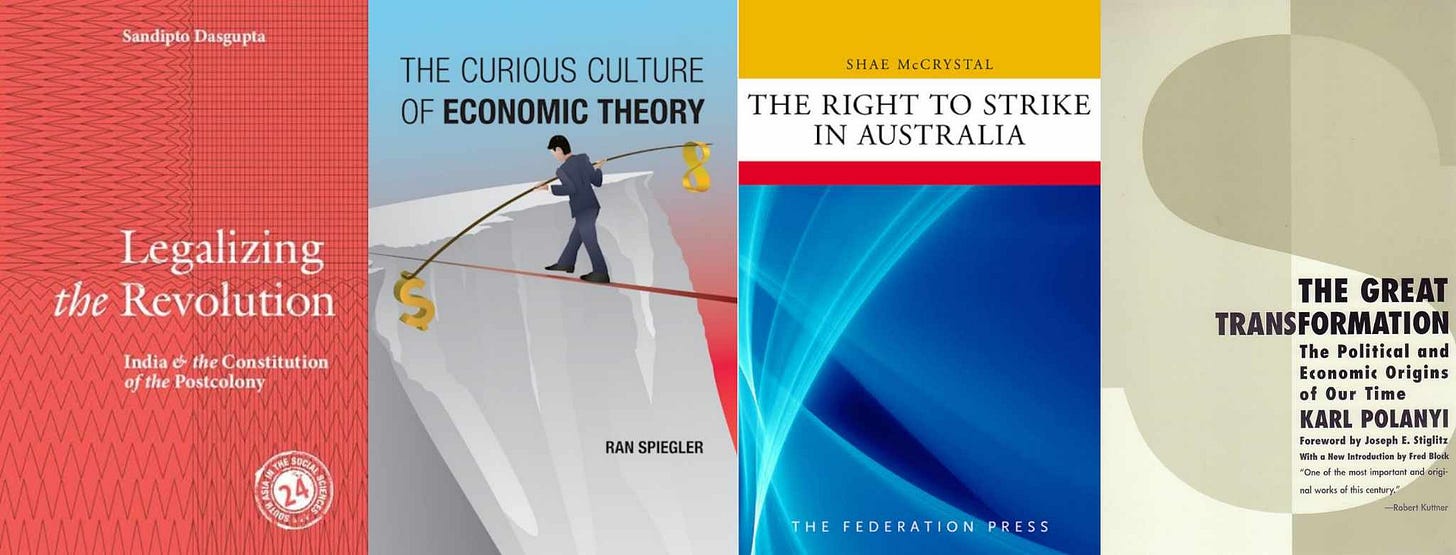September 2024 in Books
Another late submission
So I accidentally deleted my Goodreads, finally getting into doing this, once again.
Books are rated on a scale of: Excellent, Great, Good, Fine, Bad.
Legalizing the Revolution: India and the Constitution of the Postcolony - Sandipto Dasgupta - Excellent
A terrific work, analysing the Indian Constitution from a post-colonial perspective. The overall theme of the book is that of an ‘unfinished revolution’: India achieved independence without going through the sort of revolutionary transformation usually associated with Constitutional drafting. Because of this, the document served as a way to attempt legislate these changes, a “revolution without a revolution.” The beginning and ending sections are the strongest in my opinion, particularly those relating to Rights and Repression and, Property and Labour.
The Curious Culture of Economic Theory - Ran Spiegler - Great
This book is in many ways unique, I haven’t read anything quite like it. Critiques of ‘mainstream economics’, while often insightful, are usually confined to outsiders of the profession. Spiegler however offers an interesting cultural criticism of the discipline from the inside, covering a broad range of areas, including pure theory vs applied econ, and how we conceive of rationality. I’d very much recommend, it’s a technical but highly readable work, and at times quite funny.
The Right to Strike in Australia - Shae McCrystal - Great
McCrystal is a leading Australian Academic on the process of union bargaining in Australia. This work assesses how well Australia protects ‘the right to strike’ as required under international law. It’s somewhat dated, being published in 2010, but mostly holds up very well and doesn’t pull its punches. Overall a terrific piece, and I would definitely recommend it.
Unless you have a special interest I’d recommend skimming through the beginning section on international conciliation mechanisms, it’s necessary but very dry and the meat of the book occurs later.
The Great Transformation: The Political and Economic Origins of Our Time - Karl Polanyi - Great
Reread Polanyi’s classic, which details the emergence of market society and the “double movement” whereby societies developed to protect people from market forces. The integration of economics and anthropology was groundbreaking and its broad themes of humans craving stability remain true.
While a classic the book does have a somewhat unusual structure, beginning with an interesting, but largely unrelated discussion of global finance as a force for piece in the 19th century. The arguments are also sometimes somewhat confusing, as Milanovic recent wrote about, for instance: both critiquing Ricardo for his opposition to the Poor Laws, whilst also arguing the Poor Laws created terrible outcomes.


